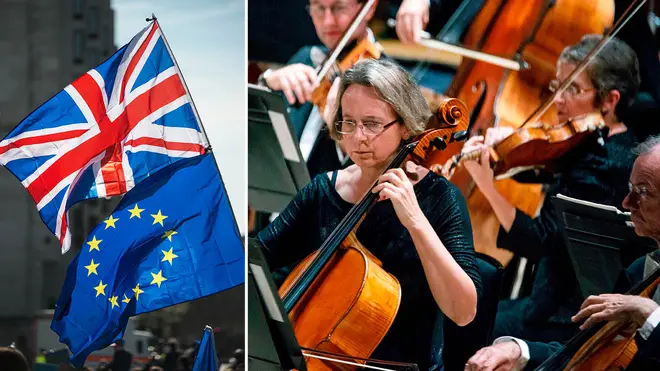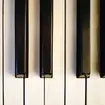Minister blames EU for ‘self-defeating’ rejection of visa-free tours and music sector injury
11 March 2021, 12:45 | Updated: 11 March 2021, 14:00

The music world is currently navigating work permits, carnets and extra costs as a result of the UK and EU’s post-Brexit trade deal.
Culture minister Caroline Dinenage has voiced her disappointment at the lack of a visa-free touring plan for musicians and their support staff with the EU.
“It’s not the deal we wanted,” the MP said at the Association of British Orchestras’ ‘Aftershock’ conference, of which Classic FM is Principal Media Partner, on Thursday 11 March.
During the Q&A, facilitated by Classic FM presenter Anne-Marie Minhall, Dinenage was asked how the government will help UK musicians work abroad after Brexit, as many begin to grapple with the reality of work permits, carnets, certificates, customs forms and road haulage limits.
“The fact is, in negotiations with EU we fought for a good deal for the world’s leading creative industries,” she said. “Our proposal was developed in consultation with our creative sector, and the proposal we were fighting for would’ve enabled performers and artists and support staff to tour and perform in the EU without needing work permits.
“It’s a huge source of regret for me that the EU rejected our proposals and I think it was quite a self-defeating move on their part.”
The EU has previously countered that it was, in fact, the UK that rejected its proposals.
Read more: Post-Brexit visas for musicians not consistent with ‘taking back control’, MP insists >

150 opera singers fight for the arts in Parliament protest
How will the government help musicians navigate touring?
The minister said her department, the Department for Culture, Media and Sport (DCMS), is committed to “streamlining systems” for touring musicians, to help simplify the process of navigating different sets of immigration rules for each EU member state.
Dinenage said DCMS is speaking “bilaterally” with independent nations, fighting for financial support for the arts as they re-emerge following the coronavirus pandemic, and looking to creating an “export office”.
“[But I] understand how disappointing this is,” the minister added. “It’s not the deal we wanted.”

Cellist Simon Wallfisch protests against Brexit by singing Beethoven's Ode to Joy
‘Why am I, an oboist, working as a carer on minimum wage?’
The pandemic’s devastating impact on the music industry was a key thread at the ABO talk, with particular attention to freelance artists.
In last week’s budget, the chancellor Rishi Sunak announced an extra £408 million injection for the arts, on top of last year’s £1.57bn Cultural Recovery Fund for struggling concert halls, opera house and orchestras.
Sunak said increased access to the self-employment scheme (SEISS) will also allow a further 600,000 people to claim from the fund for the first time. At the time, the Musicians’ Union warned several are still “falling through the gaps”.
Amid stories of freelance musicians taking on extra jobs as delivery drivers and security staff to pay the bills, Dinenage was asked by full-time oboist Louise Braithwaite “why [after 25 years] she is now working as a carer on minimum wage”.
The minister said people “in a whole range of professions” have had to make similar sacrifices. “It’s also not true to say the 1.5bn Cultural Recovery Fund isn’t benefitting freelancers either,” she added. “It really is. We’ve calculated around 12.5 percent in these costs will go to freelancers, artists and casual event staff.”
But, Dinenage said, the “one thing” that will help freelancers the most is to “get the doors flung open, which will have been achieved by the incredible efforts of people across the country, but also the government in our world-beating vaccination scheme.
“Then, people can get back to the job they love and have trained so long for.”

Let Music Live protest on London's Parliament Square
When will performances return?
Finally, the culture minister touched on what the Prime Minister’s “Covid roadmap” will mean for the arts.
Dinenage said “certainty and predictability” for the sector is the “one magical unicorn” that everyone wants, but that the government cannot give in the face of a global pandemic.
She described the roadmap, which currently allows audiences to return to venues from 17 May, as giving a “ray of hope on the horizon”.
“I for one can’t wait to get into theatres and concert halls to watch and listen to the best musicians perform to audiences.”


































